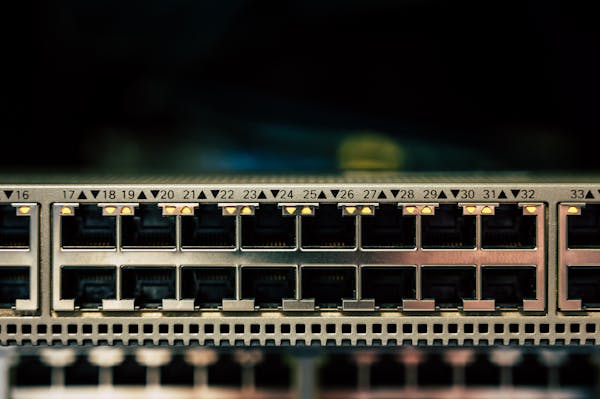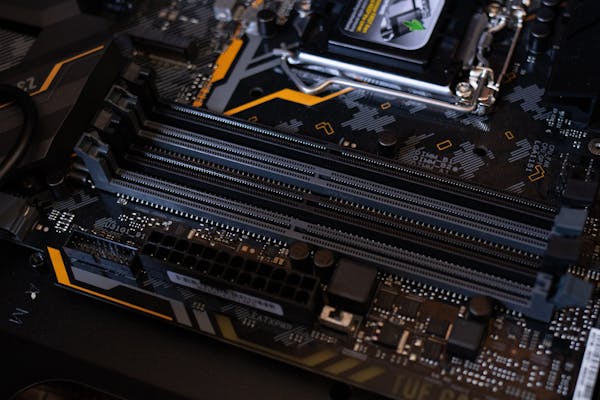Source article: click here (4G rotating proxy)

Understanding Dynamic 4G Proxy Servers
In today’s digital landscape, 4G rotating proxies have become essential for secure and anonymous browsing.
Defining 4G Rotating Proxies
4G rotating proxies employ cellular data connections to provide changing IPs to users. Unlike static proxies, they rotate IPs after set intervals, improving security.
How Do They Work?
Upon activation, a dynamic IP from a mobile network is provided. These IPs rotate based on time or requests, preventing consistent monitoring.
Benefits of Mobile 4G Proxies
- Increased Security: Dynamic IP rotation masks real IP addresses.
- Accessing Region-Locked Content: Changing IPs allow access to restricted content.
- Lowered Detection Rates: Frequent IP changes prevent bans.
Practical Implementations
- Information Gathering: Rotating IPs ensure continuous data collection.proxies support multiple profiles.
- Marketing Research: Changing IPs validate ad placements.
- o Consider}
Before selecting a provider, consider:
- Diversity of IP Addresses: A larger pool offers better rotation.
- Switching Mechanisms: Determine if the service has fixed durations.
- Regional Availability: Access to multiple regions aids in geo-testing.
Limitations to Be Aware Of
- Cost Implications: 4G proxies often have higher costs compared to other types.
- Performance Issues: Mobile networks can be less stable.
- Ethical and Legal Considerations: Ensure usage respects terms of service.
Conclusion
4G rotating proxies provide dynamic IP solutions, establishing their importance in modern internet usage.
Delving into the Technical Mechanisms of 4G Rotating Proxies
Within the sphere of online anonymity, mobile 4G proxies have become essential components for conducting secure web activities.
An Overview of 4G Rotating Proxies
4G rotating proxies employ cellular data connections to provide changing IPs to users. Unlike static proxies, they offer dynamic IP rotation, reducing detection risks.
How Do They Work?
Once initiated, the proxy server assigns a mobile IP. These IPs change after specific durations or actions, hindering surveillance.
Advantages of 4G Rotating Proxies
- Improved Privacy: Dynamic IP rotation prevents tracking.
- Overcoming Location Barriers: Changing IPs facilitate unrestricted browsing.
- Reduced IP Bans: Frequent IP changes avoid detection systems.
Use Cases for Mobile Proxies
- Information Gathering: Rotating IPs ensure continuous data collection.
- Social Media Management: Dynamic proxies facilitate automation.
- Competitor Analysis: Changing IPs validate ad placements.
Factors to Consider
When opting for a 4G rotating proxy, consider:
- IP Pool Size: A larger pool enhances anonymity.
- Switching Mechanisms: Determine if the service has fixed durations.
- Regional Availability: Access to multiple regions broadens usability.
Considerations Before Use
- Budget Concerns: 4G proxies can impact budgets compared to other types.
- Connection Stability: Mobile networks may affect consistency.
- Compliance Issues: Ensure usage respects terms of service.
Conclusion
Mobile 4G proxies offer unparalleled anonymity, establishing their importance in contemporary online activities.
The evolving internet ecosystem, maintaining online privacy and bypassing restrictions has become more critical than ever. Businesses, marketers, and developers often utilize proxy technologies to change their IPs. Among these, mobile 4G proxies have become game-changers.
How do they stack up against other alternatives like data center proxies? Let’s explore the differences.
== What is a 4G Rotating Proxy?
A 4G rotating proxy is a proxy that routes internet traffic through a real mobile device. These proxies rotate IPs at preset intervals or upon request, emulating human behavior and reducing the chance of bans or blocks.
== Main Proxy Types
Let’s outline the key proxy types before comparing:
1. **Datacenter Proxies**
– Fast and affordable, but easily flagged.
2. **Residential Proxies**
– Use IPs assigned to real homes. More reliable, but slower and costlier.
3. **4G Mobile Proxies**
– Use real SIMs on LTE networks. Best for scraping, bots, social media.
4. **SOCKS5 Proxies**
– Protocol-based, flexible, used for various apps, not just HTTP.
== Comparison Table
| Feature | 4G Rotating Proxies | Datacenter Proxies | Residential Proxies | SOCKS5 Proxies |
|————————|———————|———————|———————|—————-|
| IP Source | Mobile Network (SIM)| Data Centers | Home IPs | Varies |
| Rotation | Yes (Frequent) | Sometimes | Optional | Manual |
| Ban Resistance | High | Low | Medium | Depends |
| Speed | Medium | High | Low-Medium | High |
| Price | High | Low | Medium | Low-Medium |
| Target Use | Social, Ads, Bots | General Scraping | E-commerce, Research| General |
| Block Detection | Low | High | Medium | Medium |
== Technical Advantages of 4G Rotating Proxies
Why are 4G proxies so powerful?
– **Real Device Trust**: Websites trust mobile IPs more than others due to carrier NAT and wide user pools.
– **Shared Reputation**: IPs are shared across many users, making banning a single user risky.
– **Geo-targeted Mobile Carriers**: Rotate between networks in real U.S. cities or countries.
– **Dynamic Rotation**: Can rotate every few minutes or after each request.
– **Bypasses Captchas**: Mobile IPs are less likely to trigger captchas or challenge verifications.
== Where 4G Proxies Win
Let’s cut to the chase— if you’re running multiple Instagram accounts, nothing works better than a solid 4G proxy.
– Instagram and TikTok trust mobile IPs.
– Web scraping? You’ll trigger fewer blocks.
– Ads management across banned zones? Done.
== Where They Fall Short
– **Cost**: They’re not cheap.
– **Speed**: Slower than static datacenter options.
– **Limited Threads**: Some providers limit concurrent usage.
== SOCKS5 vs 4G: Protocol vs Behavior
SOCKS5 proxies are great tools. But they don’t rotate IPs on their own.

| Attribute | 4G Proxy | SOCKS5 Proxy |
|———————|——————–|——————–|
| Protocol Type | HTTP/HTTPS | SOCKS5 (All apps) |
| Rotation | Yes | Manual |
| IP Trust Level | Very High | Medium |
| Use Cases | Social, Ads, Bots | Torrenting, Apps |
== Use Cases Side-by-Side
**4G Rotating Proxies:**
– Social Media Management
– Mobile Ad Verification
– SEO Scraping
– Sneaker Bots / E-com Testing
– Marketplace Automation
**Datacenter Proxies:**
– High-volume scraping (non-sensitive)
– Speed-demanding tasks
– Price-conscious campaigns
**Residential Proxies:**
– E-com price intelligence
– Research tools
– CAPTCHA-heavy targets
**SOCKS5 Proxies:**
– Application-level traffic routing
– Anonymity over torrents
– Bypassing firewalls
== How to Choose the Right One?
Not all proxies are created equal. Here’s how to choose:
– Need speed? Go datacenter.
– Need trust and stealth? Go 4G mobile.
– Need app-level routing? Go SOCKS5.
– Need wide IP pools without rotation? Try residential.
== Future of 4G Rotating Proxies
With AI detection systems growing smarter, only carrier networks are keeping up. We’re seeing:
– 5G proxy rollouts in testing
– Smarter rotation algorithms
– Integration with automation platforms like Jarvee, NextPost, Puppeteer
== Final Verdict
If stealth matters, 4G rotating proxies are your best bet. For any campaign that’s sensitive, black-hat, or gray area, it’s worth the investment.
== Spintax Conclusion
Whether you’re managing client accounts, investing in the right proxy is key to success.
4G rotating proxies may cost more, but the results speak for themselves.
https://www.fortinet.com/resources/cyberglossary/proxy-server
https://en.wikipedia.org/wiki/Proxy_server
https://support.microsoft.com/en-us/windows/use-a-proxy-server-in-windows-03096c53-0554-4ffe-b6ab-8b1deee8dae1
https://www.reddit.com/r/explainlikeimfive/comments/1dfgepb/eli5_what_is_a_proxy_server_and_why_would_i_as_an/
https://surfshark.com/blog/proxy-server




